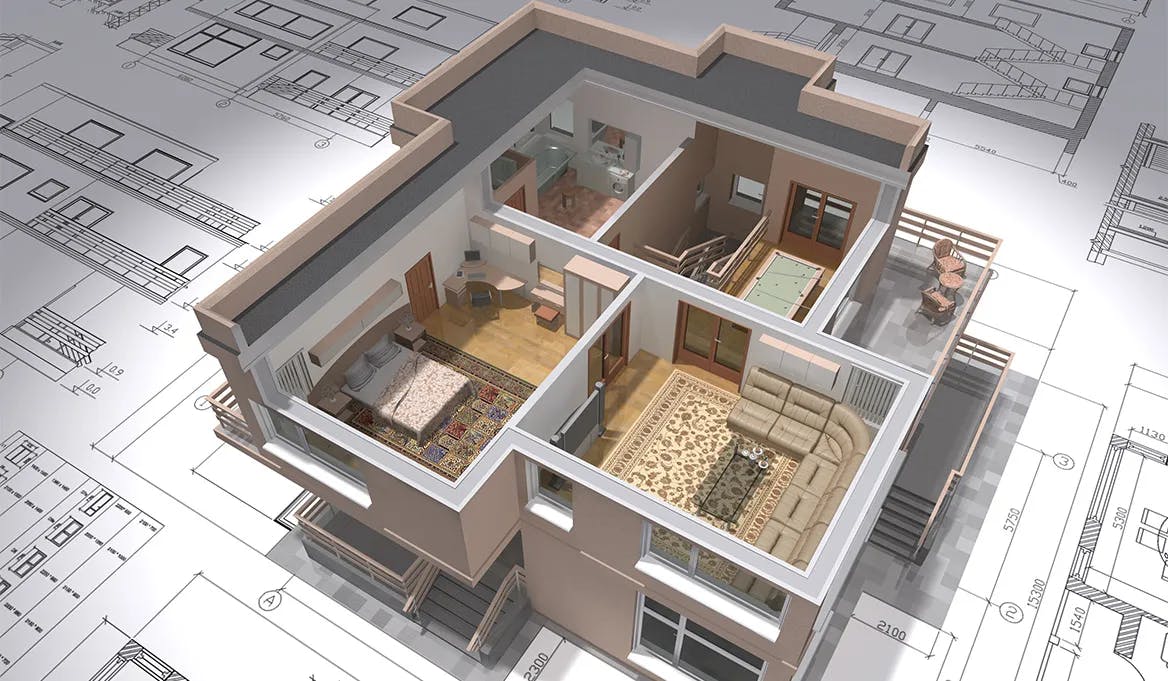
Top Tips for Negotiating Property Prices in Dubai Real Estate
Nov 6, 2024
8 minutes read
Buying property in Dubai can be an overwhelming experience, but it often requires a well-crafted strategy. With the right approach, you can secure your dream property at a reasonable price. Understanding Dubai's unique real estate dynamics and applying an effective concession strategy can make a significant difference in the amount you ultimately pay. Then are the most effective strategies to help you successfully negotiate property Prices in Dubai in 2024.
1. Negotiating Property Prices in Dubai: Understand the Dubai Real Estate Market

Image Credit: tripadvisor
To negotiate effectively, you need to know the Dubai real estate request well. Dubai’s property market can be influenced by seasonal trends, economic fluctuations, and buyer demand. Sometimes we may see jacked exertion, while others may witness a pause. By understanding when demand is lower, you can time your accommodations more. Request reports and original real estate data to gain insight into current trends, helping you decide if you’re negotiating during a buyer’s request or a dealer’s request. In a buyer’s request, for illustration, you have further negotiating power, as parcels take longer to vend.
The real estate request in Dubai generally moves in cycles. During a dealer’s request, parcels vend snappily and for advanced prices, with less room for concession. In discrepancy, a buyer’s request offers further openings, as parcels stay available for longer, making merchandisers more likely to negotiate. By understanding the current phase, you can align your approach accordingly. You may also find better prices during quieter times of the year, as summer months tend to have lower sale volumes in Dubai. Planning to buy a property in Dubai during these slower months could give you an edge.
2. Set a Clear Budget and Stick to It

Before starting accommodations, define a clear budget to prop your strategy in negotiating property prices in Dubai. Knowing how much you can easily spend keeps you focused and helps avoid last-minute financial stress. Besides the property price, flashback to factor in fresh costs such as enrollment freights, transfer freights, agent commissions, and conservation freights. This ensures that you have a realistic budget from the morning, allowing for a smooth concession process. Setting a maximum price you’re willing to pay can keep you protected, indeed, if the accommodations become violent.
In accommodations, the capability to walk down can be an important tool. When a dealer sees that you’re willing to explore other options, they may come more flexible with their terms. With a well-defined budget, you’ll feel confident, knowing you’re not overspending.
3. Conduct a Comparative Market Analysis (CMA)

Before starting accommodations, define a clear budget to prop your strategy in negotiating property prices in Dubai. Knowing how much you can comfortably spend keeps you focused and helps avoid last-minute fiscal stress. Besides the property price, flashback to factor in fresh costs such as enrollment freights, transfer freights, agent commissions, and conservation freights. This ensures that you have a realistic budget from the morning, allowing for a smooth concession process. Setting a maximum price you’re willing to pay can keep you protected, indeed, if the accommodations become violent.
In accommodations, the capability to walk down can be an important tool. When a dealer sees that you’re willing to explore other options, they may come more flexible with their terms. With a well-defined budget, you’ll feel confident, knowing you’re not overspending.
4. Leverage Financing Pre-Approval

Still, securing pre-approval from a bank or lender strengthens your position if you’re financing your purchase. A pre-approval shows that you’re a serious buyer with the financial capability to close the deal. Merchandisers frequently prefer to deal with pre-approved buyers, as it reduces the threat of detainments or complications with backing. With pre-approval, you may find the dealer more open to price accommodations, knowing the trade is likely to go through easily.
Also, having your backing arranged allows for a hastily close, which can appeal to merchandisers, especially those keen on finishing the trade snappily. By simplifying the sale, you increase your chances of negotiating a favorable price.
5. Differentiate Between Off-Plan and Resale Properties

Dubai’s real estate request offers both off-plan (under construction) and resale( completed) parcels. Knowing the type of property you’re dealing with can impact your concession strategy. Off-plan parcels are frequently priced competitively to attract early buyers, and inventors may offer incentives like flexible payment plans or quitclaim deeds. While these impulses can enhance the property’s value, it’s still possible to negotiate on price, especially if the inventor has a strong deal target to meet.
Resale parcels, on the other hand, might offer further room for price concession, especially if the property has been on the market for a while. With resale parcels, factors like property condition, furnishings, or the dealer’s provocation position can all influence price flexibility. Feting the advantages and nuances of each property type helps you approach accommodations with an acclimatized strategy.
6. Make an Informed Initial Offer

Your original offer sets the tone for negotiating property prices in Dubai. Research similar parcels and consider making an offer slightly below what you’re eventually willing to pay, leaving room to negotiate overhead if demanded. A well-made offer shows the dealer that you’re serious about the property, yet it gives you a buffer for further discussion. Avoid extremely low offers, as they may discourage the dealer and reduce your chances of a favorable outcome. Starting with a competitive offer demonstrates respect for the dealer’s property and your understanding of the request. By presenting a reasonable offer, you’re more likely to engage the dealer in a productive concession.
7. Build Positive Rapport with the Seller

Establishing a fellowship with the dealer can make accommodations more successful. Merchandisers frequently appreciate buyers who show genuine interest in their property. Regardful communication and understanding the dealer’s provocations can foster a positive concession atmosphere. This connection may encourage the dealer to be more flexible with their terms, making it easier to reach a mutually agreeable price.
Still, expressing appreciation for its unique rates can produce goodwill if the dealer has an emotional connection to the property. When accommodations are friendly, both parties are more likely to make concessions.
8. Be Willing to Compromise

Inflexibility is essential for effective accommodations. While it’s pivotal to stay firm on your main objectives, being open to minor negotiations can help you close the deal. For example, agreeing to a slightly advanced price in exchange for including certain furnishings, or covering certain freight, can make the concession more charming to the dealer. These concessions can frequently lead to a smoother process and a hasty agreement.
Approaching accommodations with a cooperative mindset helps both parties feel they’ve achieved a favorable outcome. By finding common ground, you increase the chances of a successful sale.
9. Time Your Offer Strategically

Timing can play a significant part in securing a good deal. Merchandisers looking to discharge property quickly, maybe due to fiscal commitments or relocation, may be more inclined to negotiate. However, this may gesture the dealer’s openness to discussion, if the property has been listed for an extended period. Making an offer during a slower period in the request, like summer, could further ameliorate your chances of a favorable concession.
Strategic timing shows that you understand the request dynamics and may prompt the dealer to meet you halfway, especially if they’re eager to complete the trade.
10. Utilize a Real Estate Agent’s Expertise

An educated real estate agent can offer inestimable support throughout accommodations. Original agents bring knowledge of the request, property values, and trends, which strengthens your negotiating position. An agent can advise on an applicable starting offer, identify implicit influence points, and grease communication with the dealer. Their guidance can frequently lead to a more favorable deal than negotiating alone.
In addition to perceptivity, agents handle the practical aspects of the process, allowing you to concentrate on decision-making rather than handling all the details. With an agent, you have a professional mate who looks out for your stylish interests.
11. Exercise Patience and Persistence

Accommodations can take time, especially in a competitive real estate request. Rushing to close a deal may lead you to miss precious openings for adjustments. However, take the time to consider it precisely before responding if the dealer counters with a different offer. Showing tolerance and continuity indicates that you’re serious and committed to a fair outcome. Staying calm and harmonious throughout the process can help you achieve the stylish possible terms.
Accommodations are infrequently a one-time exchange; frequently, the stylish deals come from steady, thoughtful conversations that develop over time.
12. Focus on Long-Term Investment Value

While negotiating a favorable price is essential, it’s also vital to consider the property’s long-term value. A property that meets your long-term requirements or has solid investment eventuality can offer significant returns, indeed if it requires a slight decoration. Suppose about the position’s future development, structure plans, and property appreciation trends. A good long-term investment can outweigh the original costs, making the purchase worthwhile.
By fastening on overall value, you ensure that the property remains a strong asset for times to come.
13. Finalize with a Clear Purchase Agreement

After reaching an agreement, a clear, comprehensive purchase agreement protects both parties in the process of negotiating property prices in Dubai. The agreement should include all terms, including the final price, any agreed-upon institutions or furnishings, and any contingencies. A detailed contract reduces misconstructions and secures the terms of your purchase. Consulting a good attorney or real estate agent ensures that all aspects of the agreement meet your prospects, furnishing clarity and peace of mind. A well-structured agreement marks the capstone of successful concession, icing a smooth path to property power.
Ready to Negotiate Like a Pro?

learning concession in Dubai’s real estate request takes medication, knowledge, and rigidity. By understanding request dynamics, setting a clear budget, using a relative request Analysis, and using backup options, buyers can negotiate effectively and secure a property at an ideal price. Flash back that tolerance, continuity, and an amenability to compromise are crucial. Armed with these strategies, you’re well-equipped to navigate the concession process and secure a precious investment in Dubai’s thriving property market.
Secure Your Ideal Property Today!
Ready to make your move in Dubai's dynamic real estate market? With the right concession tactics, you can secure your dream property at the perfect price. Communicate with us to begin your trip and let our platoon guide you every step of the way toward a successful investment.




